CSO’s uneven “War Requiem” fails to reach the heights
On November 14, 1940, the German Luftwaffe attacked the city of Coventry with a devastating bombing raid that left St. Michael’s Cathedral, a magnificent 14th-century Gothic church, in ruins.
Twenty-two years later, a new Coventry Cathedral was consecrated and there Benjamin Britten’s War Requiem, which was commissioned for the occasion, received its world premiere, where it won instant international acclaim.
Marking the Britten centennial year, Charles Dutoit and the Chicago Symphony Orchestra and Chorus presented the War Requiem Thursday night at Symphony Center—73 years to the day of the Coventry bombing.
Dedicated to four deceased friends of Britten and his partner, tenor Peter Pears, the War Requiem is uniquely structured. The English composer intersperses the Latin requiem mass for the dead with the searing, extraordinary poems of Wilfred Owen, the English poet who was killed in action in the final week of World War I. The work is scored for vast forces, including tenor and baritone soloists who perform the Owen settings accompanied by a small chamber orchestra, set off from a soprano who joins the chorus for the Latin texts with the large principal orchestra. An offstage children’s choir adds eerie and unearthly counterpoint accompanied by organ.
Though the War Requiem is Britten’s most public work, in many ways, it also counts among his most personal statements reflecting the composer’s contradictory impulses—an uneasy nationalism and ambivalent Christianity allied to an antiwar, firmly pacifist stance.
Thursday’s performance with Dutoit leading the CSO forces had impressive moments but felt like a work in progress, never quite seeming to gel into a cohesive whole.
The stage presentation was clearly an attempt to recreate some of the spatial layout of the divided forces at the oratorio’s cathedral premiere, here achieving mixed results. While the winds, first timpani and bass drum were placed behind the male soloists, the Chicago Children’s Chorus were positioned antiphonally in both sides of the upper balcony with chamber organ and conductor Josephine Lee. Far from creating the ethereal mysterious sound, the effect was quite the opposite, with the children’s voices pure of tone and well rendered but far too present, especially for those sitting in the lower balcony.
In fact, the performance as a whole has some of the same issues. Dutoit clearly has a feel for this music, and, indeed led performances of the War Requiem just last week with the Boston Symphony and the same trio of soloists.
The orchestral playing was as gleaming and first class as one would expect, with trumpets in the off-kilter fanfares and winds and string principals especially inspired. The big brass and choral climaxes lacked nothing in power and resonance.
Yet there is something in Dutoit’s emphatic style that at times seemed to mitigate against the more inward and delicate moments. Indeed, Thursday’s performance often felt like a series of fitfully effective episodes that failed to coalesce into the overarching grand statement that Britten intended. The performance of the War Requiem by Carlos Kalmar and the Grant Park Orchestra and Chorus this past summer was a more complete and fully realized performance in nearly every respect.
Part of the issue had to do with the mixed trio of soloists. Dutoit here follows the premiere by having each from a country of opposing forces with an English tenor, Russian soprano and German baritone. (Peter Pears, Galina Vishnevskaya and Dietrich Fischer-Disekau were the soloists at the premiere, and in Britten’s own subsequent nonpareil recording of the work.)
John Mark Ainsley is an artist with extensive Britten credentials yet the veteran English tenor’s performance proved rather uneven Thursday. His timbre has some of the light, reedy quality of Pears but Ainsley too often failed to project the texts with sufficient clarity and impact. In the more lightly scored sections, Ainsley’s words were more discernible as with his touching “Move him into the sun.”
Tatiana Pavlovskaya’s soprano, likewise, emerged rather shallow of tone in the early going, though the Russian soprano sang with greater gleam as the work unfolded.
The finest moments of the evening came from Matthias Goerne. As anyone who has caught the German baritone’s annual lieder recitals at Ravinia will know, Goerne is an artist of remarkable insight and distinction. He brought a wide range of vocal coloring and expressive nuance to his solo moments with the singer mesmerizing in “I am the enemy you killed, my friend.”
Under the direction of Duain Wolfe, the CSO Chorus sang with ample power and sensitivity if not always clarity, with words too often indecipherable. The ill-advised balcony placement apart, the Chicago Children’s Chorus sang with purity and precision under Josephine Lee’s vigorous direction.
The text and translations were projected over the stage, redundantly so since nearly half of the text is in English and many will be familiar with the Latin words of the mass. As it turned out, the surtitles became glitchy twenty minutes into the performance before disappearing altogether, reflecting an evening of worthy intentions but mixed results.
Britten’s War Requiem will be repeated 8 p.m. Friday and Saturday. cso.org; 312-294-3000.
Posted in Uncategorized
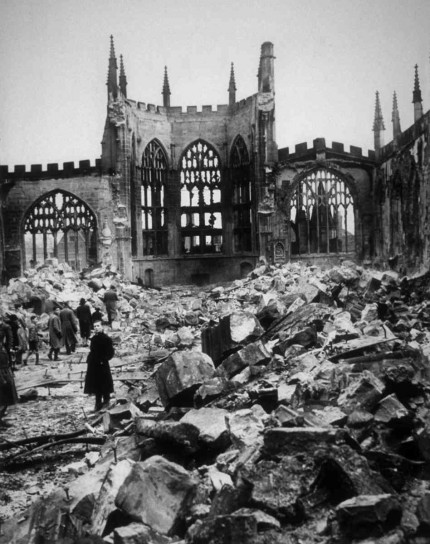

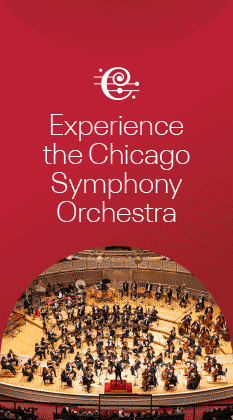
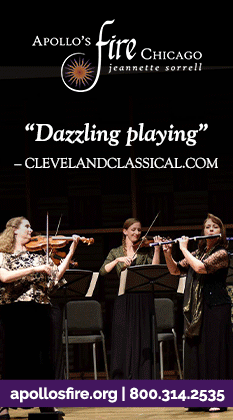

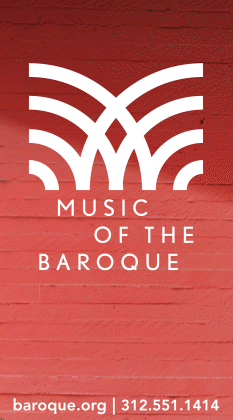
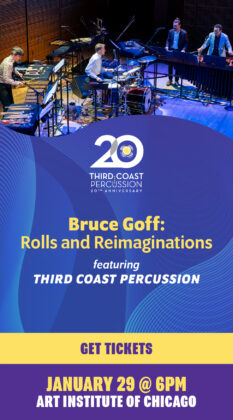
Posted Nov 16, 2013 at 10:05 pm by Lawrence Eckerling
From someone sitting in the Gallery, the Children’s choir placement did for me create the desired distant effect. I can see how it would be problematic if you were sitting in the same section where the children’s choir and organ were playing from.
Posted Nov 18, 2013 at 10:06 am by Max Raimi
I had the perspective of being on stage performing, so perhaps my vantage point is skewed, but I strongly disagree that it was redundant to have the text both projected and in the program notes.
It is hard to make out all the words when they are sung, especially when the language is so allusive and occasionally archaic. So it was good to have the words up on a screen, which spares the audience from staring at their programs all night and subjecting the performance to a subtle rustle every time they all turn a page in unison.
But I also cherished having a written document with the text. I have been studying Owen’s poems since the performances, and am little by little coming to truly understand them–they are astonishing.
Posted Nov 19, 2013 at 6:02 pm by Robert Heitzinger
I wonder if you heard the same Mathias Goerne? His English diction is TERRIBLE! He couldn’t decide whether to use “w” or “v” on some words. And what’s with the hunched-over “acting. I was in the sixth row on Thursday night, and he continually scanned the audience, fidgeted, and mouthed the words with the chorus. This is a professional?
His mid-range had good color, but he could not maintain vocal phrases and took gasping breaths. To top it off, he omitted the high G4 at the end of one of his big arias.
And I’m sorry, he may have been a bad boy singer when he was younger, but his unkempt, unshaven look doesn’t cut it anymore. Did the CSO not pay him enough for him to even rent a tux?